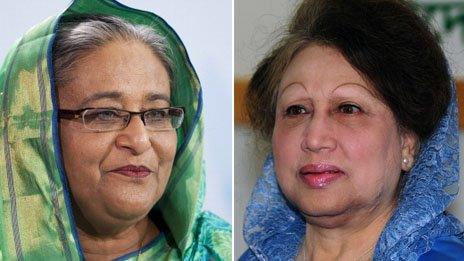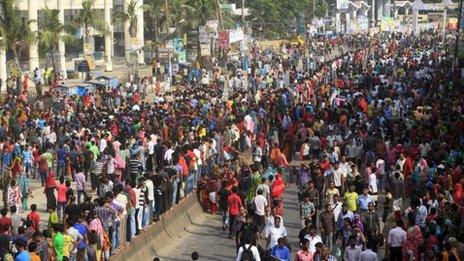Q&A: Bangladesh general elections
- Published

PM Sheikh Hasina (left) and opposition leader Khalida Zia are two of the most important leaders in Bangladesh.
Bangladesh will hold its 10th general elections on 5 January amid serious questions over the credibility of the electoral process.
The main opposition Bangladesh Nationalist Party (BNP) and its allies have decided to boycott the elections over the governing Awami League's reluctance to form a neutral government to oversee the process.
The opposition demanded that Prime Minister Sheikh Hasina must step down and form a caretaker neutral government before elections are held in Bangladesh.
The government, however, has rejected the demand, saying the elections are a constitutional necessity and will be held on 5 January.
What is at stake?
Why is the BNP not participating?
What will be the impact?
Who are the main protagonists?

Bangladeshi garment factory workers have been protesting against poor working conditions and low wages
What are the main issues?
What are the geopolitical implications of the polls?
How long will it take for the votes to be counted and will turnout be low because of the opposition boycott?
BBC Monitoring, external reports and analyses news from TV, radio, web and print media around the world. For more reports from BBC Monitoring, click here. You can follow BBC Monitoring on Twitter, external and Facebook, external.